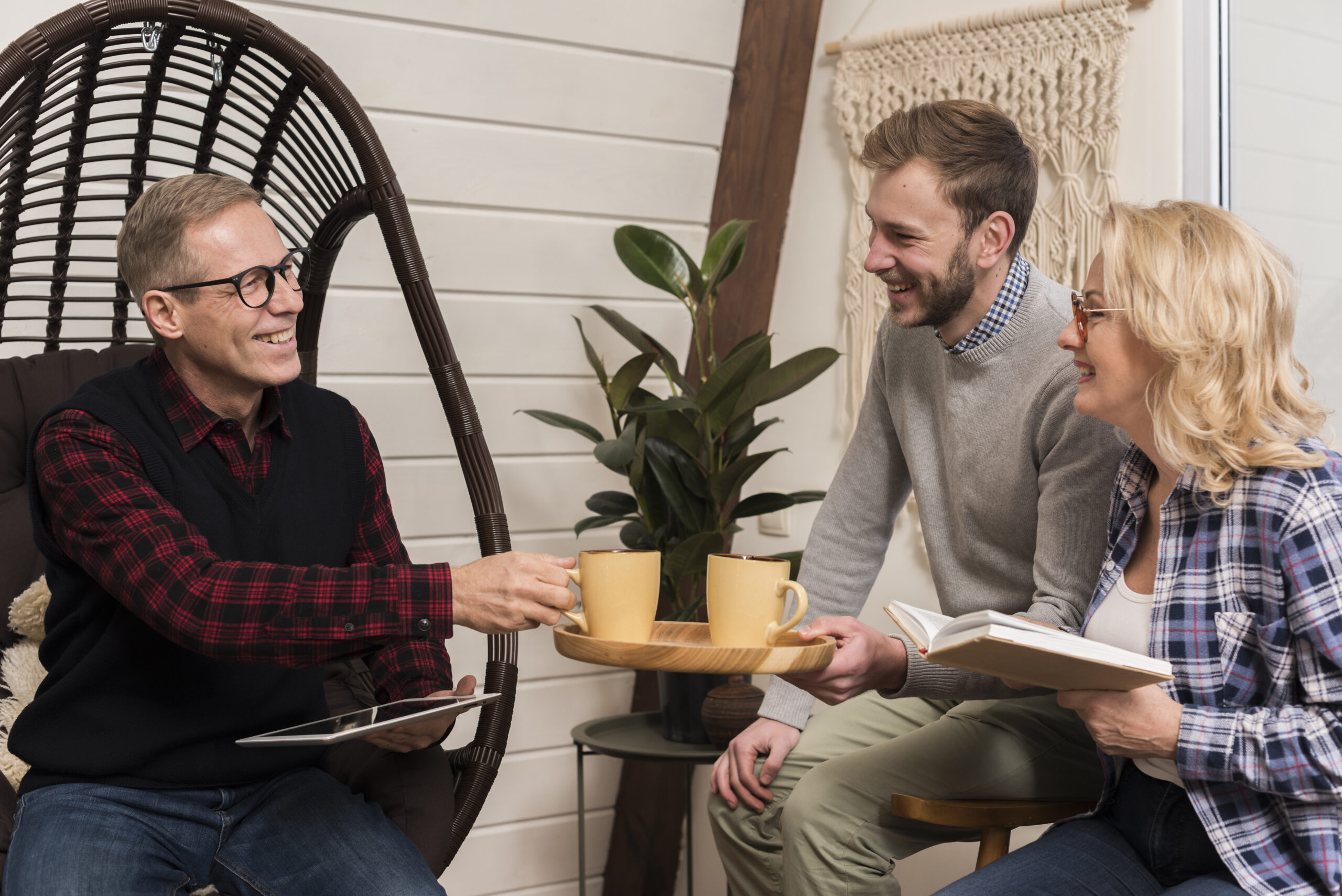7 Effective Ways to Properly Apologize to Your Partner
how to apologize to your partner may seem simple, but anyone in a relationship knows it is far from easy. Many couples get stuck in cycles of conflict, not because of the original mistake, but because apologies fall short. A quick “sorry” without depth or acknowledgment often leaves the other person feeling unheard, dismissed, or undervalued.
Research shows that couples who practice meaningful apologies report higher levels of trust, forgiveness, and relationship satisfaction. In contrast, superficial or defensive apologies can deepen resentment and prolong distance.
The good news is that learning how to apologize to your partner is a skill that can be learned and strengthened. With the right approach, you can move beyond surface-level words and offer genuine repair that fosters healing and reconnection. Here are seven practical ways to properly apologize to your partner.
1. Understand Why a Genuine Apology Matters

A simple “I’m sorry” may temporarily stop an argument but rarely heals emotional wounds. Partners usually seek more than the words themselves; they seek sincerity, acknowledgment, and effort behind the apology.
Example: Mia forgot her anniversary dinner plans. Saying “Sorry, I was busy” left her partner feeling overlooked. A more effective apology was: “I forgot our anniversary dinner, and I know that hurt you. I care deeply about us and want to make it right.”
Signs of a genuine apology:
- Tone matches your words; avoid sarcasm or dismissiveness.
- You acknowledge your role without shifting blame.
- You express regret for both your actions and the impact on your partner.
Sincere apologies communicate that the relationship matters more than pride, and they increase the likelihood of forgiveness and emotional repair.
2. Take Responsibility Without Excuses
Many people weaken their apologies with excuses. Statements like “I’m sorry, but I was stressed” often sound defensive and shift responsibility away from the person apologizing.
Example: Jacob raised his voice during an argument. His first attempt — “I’m sorry I yelled, but you kept interrupting” — frustrated his partner. When he said instead, “I shouldn’t have yelled. That was hurtful,” the conversation shifted toward repair.
Ways to show responsibility:
- Avoid defensive qualifiers such as “but,” “if,” or “you made me.”
- State your action clearly: “I forgot to call you back.”
- Own the impact, not just the action: “That made you feel ignored.”
Owning up demonstrates maturity and reassures your partner that accountability matters more than defensiveness.
3. Acknowledge Your Partner’s Feelings

Apologies are not only about your behavior but also about the emotional impact on your partner. Acknowledging their feelings validates their experience and shows that you understand the hurt caused.
Example: Sarah arrived late to an important event. Her partner wasn’t just upset about her tardiness; he felt unimportant. Priya’s apology became meaningful when she said, “I realize being late made you feel like this event wasn’t important to me. I can see how much that hurt.”
Tips for acknowledging feelings:
- Name the emotion: “I can see you felt hurt and frustrated.”
- Avoid arguing about whether the feeling is “valid.”
- Focus on understanding and empathy, not explanations.
Centering your partner’s emotions creates space for healing and strengthens the connection.
4. Be Specific in Your Apology
Generic apologies often feel empty. A vague “I’m sorry for what happened” may leave your partner wondering if you truly understand the issue. Specificity shows attentiveness and care.
Example: Daniel apologized for being distant: “I’m sorry for shutting down during our argument last night. I know my silence made you feel uncared for, and I want you to know I do care.”
How to be specific:
- Identify the exact behavior: “I snapped at you when you asked about dinner.”
- Recognize the consequence: “That made you feel dismissed.”
- Share your plan for change: “Next time, I’ll take a breath before responding.”
Specific how to apologize to your partners become repair statements that rebuild trust and demonstrate understanding.
5. Offer to Make Amends
An apology feels incomplete without a plan to make things right. Offering amends shows you are remorseful and committed to preventing the same hurt in the future.
Example: Rachel forgot her partner’s family gathering. She apologized and asked, “How can I make this right?” She also set calendar reminders to prevent repeating the mistake. Her effort strengthened trust.
Ways to offer amends:
- Ask directly: “What can I do to make this better?”
- Suggest concrete actions: “I’ll handle the dinner reservations next time.”
- Follow through consistently.
how to apologize to your partner paired with actions are far more effective at restoring trust than words alone.
Quick Comparison Table: Ineffective vs Effective Apologies
| Ineffective Apology | Effective Apology |
| “I’m sorry if you were hurt” | “I’m sorry I hurt you by…” |
| Offers excuses or “but” statements | Takes full responsibility |
| Vague and non-specific | Names the action and its impact |
| Offers quick fixes without follow-up | Offers concrete amends and follows through |
| Pressures for immediate forgiveness | Gives space and respects healing time |
6. Practice Patience and Timing
Timing plays a key role in how well an apology is received. Apologizing too quickly while emotions are high can feel insincere. Waiting too long, however, may make the hurt grow.
Example: Chris rushed into an apology during a heated argument about finances. It felt forced and insincere. Later, after both had cooled down, he revisited the conversation thoughtfully, which allowed his partner to truly hear him.
Tips for effective timing:
- Allow space if your partner needs it; do not demand immediate forgiveness.
- Revisit the issue when both parties are calm.
- Reaffirm openness: “I want to talk when you’re ready. I know this matters.”
Patience demonstrates respect for your partner’s emotional process and can make your apology more impactful.
7. Pay Attention to Body Language and Tone
Your nonverbal cues often speak louder than words. Even a well-crafted apology can feel hollow if your body language or tone communicates defensiveness, irritation, or indifference.
Example: Sarah apologized for being short-tempered but crossed her arms and avoided eye contact. Her partner felt she was not sincere. When she sat calmly, made eye contact, and spoke gently, her apology was received much more positively.
Key aspects to consider:
- Maintain open and relaxed posture.
- Keep your tone soft and even.
- Make appropriate eye contact to show attentiveness.
- Avoid gestures that indicate frustration or detachment, such as checking your phone or sighing.
Matching your body language and tone with your words reinforces sincerity and demonstrates that you are fully engaged in repairing the relationship.
When Professional Guidance Can Help

Sometimes, conflicts feel too complex or repetitive to resolve through apologies alone. Professional support can help couples move beyond cycles of blame and miscommunication.
Benefits of working with a therapist:
- Learn structured techniques for giving and receiving apologies.
- Understand the underlying emotions fueling recurring conflicts.
- Practice healthy communication in a safe and neutral environment.
Dr. Harel Papikian, a licensed clinical psychologist in Los Angeles, has over 16 years of experience helping couples strengthen emotional intimacy and rebuild trust. His virtual sessions allow partners to practice these skills from home and receive guidance tailored to their unique situation. Many couples find that professional support ensures apologies translate into lasting change.
Bringing It All Together
A well-crafted apology is more than saying “I’m sorry.” It is a process that involves acknowledgment, responsibility, empathy, specificity, amends, patience, and careful attention to tone and body language. When applied thoughtfully, apologies not only repair immediate hurt but also strengthen long-term emotional connection.
Small shifts, such as avoiding excuses, acknowledging feelings, and following through with amends, can significantly improve how couples navigate conflict. Consistently practicing these strategies can turn moments of tension into opportunities for growth and deeper trust.
For couples who struggle to move past repeated conflicts, professional guidance can offer accountability, tools, and support to ensure apologies are meaningful and effective.
Contact Dr. Harel Papikian
Phone: (310) 713-6093
Email: Dr.Harel@westhollywoodcouples.com
Address: 822 S Robertson Blvd #303, Los Angeles, CA 90035
With thoughtful practice and the right guidance, how to apologize to your partner can transform conflict into understanding, strengthen your relationship, and help you build a more resilient partnership.

Leave a Reply